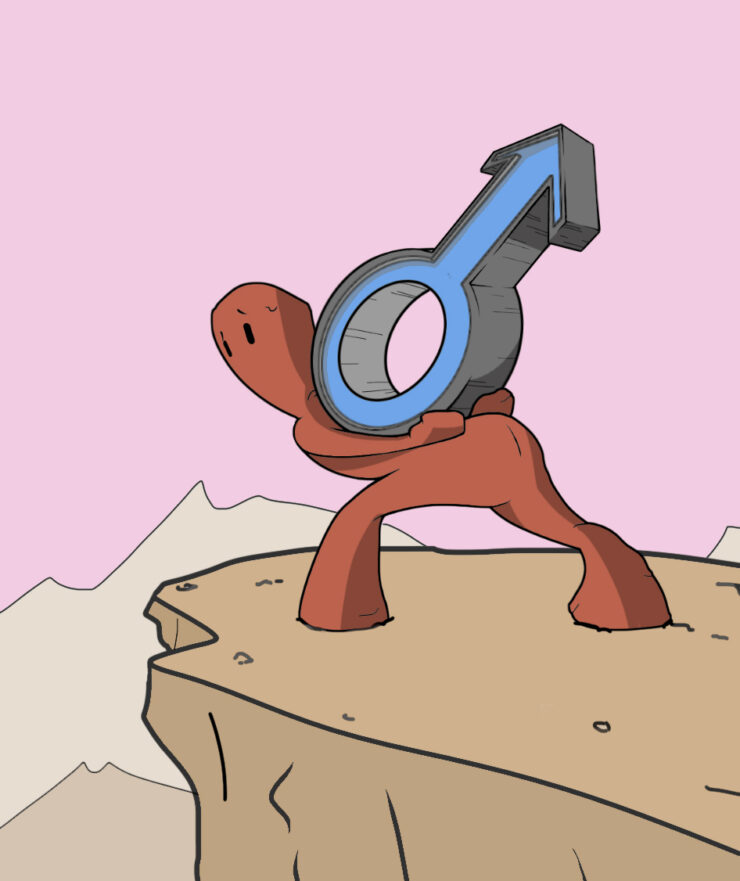Putting the “men” back into mental health
Despite an apparent increase in the public’s awareness and understanding of mental health concerns, recent improvements in mental health statistics have not had an evenly distributed effect across all populations. As study after study gets published, it has become increasingly apparent that mental health concerns among Canada’s men have not received the attention they are due.
Even in 2018, men are still significantly less likely to admit to facing mental health issues and even less likely to seek professional help. A constantly perpetuated culture of merciless independence, a general lack of resources, and a problematic standard of what constitutes “real” mental illness has led to a society where men are often expected to suffer alone in silence.
Even pinpointing the frequency of mental illness among Canada’s men has proven to be a challenge due in part to a lack of understanding in how it is expressed across gender lines. The anxiety attacks and bed-bound depression that dominate awareness campaigns do not appropriately capture the ways in which mental illness manifests itself in men. Far more commonly, it comes out as aggression, substance abuse, and social isolation.
These issues are often addressed as a patchwork of interconnected, but ultimately distinct problems, rather than direct symptoms of an underlying illness. When homelessness is blamed on being lazy, drug abuse is blamed on a lack of fortitude, and anger is an unavoidable personality trait, an attitude is created where illness becomes a character flaw, both in society and in the sufferer’s mind.
For men who acknowledge they have a problem, building up the courage to seek help is a challenge in and of itself. Western men have grown up in a society that bombards them with the belief that they are the ultimate masters of their fate. Rarely does a movie star save the day because of a strong support network or mutual sympathy for others. The grit, determination, and ingenuity of the hero always brings victory to the world that was depending on him. The girl of his dreams is never a pivotal part of his decision making, or a source of comfort; she is a reward for demonstrating his independence and perseverance.
When mental illness is turned into a challenge to be overcome rather than a diagnosable and treatable issue, it turns asking for help into a shameful surrender.
Men that finally make the tough decision to make the call and ask for help face yet another hurdle: a critical lack of productive resources. A shortage that is ironically caused by their traditionally dominant and privileged role in society.
Gendered resources for mental health are essential in order to address the radically different ways men and women experience illness. Recent years have seen a global rise in women’s support centers, gender specific crisis lines, and government assistance programs aimed at providing safe and understanding spaces in a society that often fails to understand them. However, the prevalence of these invaluable resources are not mirrored for men and proposals for their creation are often met with harsh opposition.
Men and women alike often attack men’s spaces as breeding grounds for toxic ideas and a way to perpetuate the current gendered hierarchy. Changing this requires a complete overhaul of the way social privilege is understood and a general acceptance of the fact that a socially beneficial position does not make you immune to problems or unworthy of support. Mental illness does not discriminate, and spaces for men to address their issues rather than letting them fester are essential if we are to solve the culture of unnecessary independence that perpetuates the men’s mental health crisis.
Mental illness affects people from all walks of life and the world benefits when we can all understand and empathise with each other’s experiences. The internal and social pressure many men are under to remain independent eats away at them, often without their knowledge. Radical reform will come in time, but people experience these pressures every day right now. If you suspect someone you know is struggling with mental illness, approach them first. Small acts of empathy are the start of widespread change.





